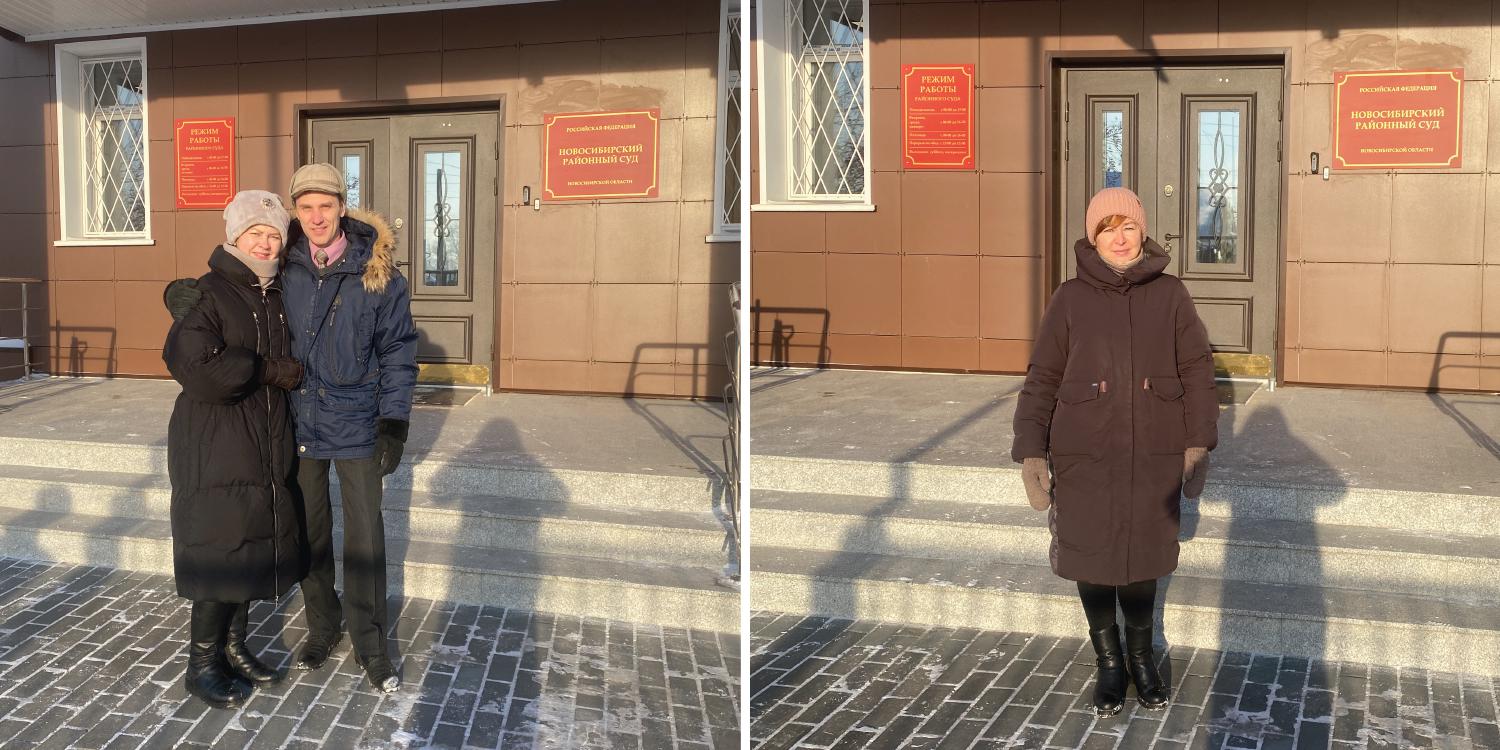On 7 December, the Argentinian newspaper “LA NACION” titled an article about the Buenos Aires Yoga School (BAYS) accused of criminal activities “The case is back to zero and the defendants are close to acquittal.” This was the conclusion of Gabriel di Nicola, the author of the article, after a court of appeal declared the nullity of the elevation to trial of the case.
The decision was taken by Chamber II of the Court of Appeals in the Federal Criminal and Correctional Court of Buenos Aires, composed of judges Martin Irurzun, Roberto Boico and Eduardo Farah.

In the BAYS case, seventeen people had been prosecuted for crimes of illegal association, human trafficking for sexual exploitation and money laundering. In the last few years, hundreds of media outlets in Argentina and abroad had presented the yoga group headed by Juan Percowicz, 85, as a “horror cult.”
Last September, following a request made by federal prosecutor Carlos Stornelli and his colleague from the Office of the Attorney General for Trafficking and Exploitation of Persons (PROTEX), Alejandra Mangano, federal judge Ariel Lijo had closed the investigation of the case and brought it to trial with 17 defendants, including Juan Percowicz, the 85-year-old leader of the yoga school, who was identified by the prosecutors as the head of the alleged criminal organisation.
9 women declared victims of human trafficking for sexual exploitation against their will
Nine women who had attended the classes of the Buenos Aires Yoga School (BAYS), accused of alleged trafficking in human beings for prostitution, were declared victims of BAYS by two prosecutors of PROTEX despite their repeated and strong denials of ever having been prostituted.
Until 2012, sexual exploitation was punishable by Law 26.364 but on 19 December 2012, this law was amended in such a way that it opened the door to controversial interpretation and implementation. It is now identified as Law No 26.842 on Prevention and Punishment of Human Trafficking and Assistance to Victims.
About some aspects of the implementation of this law, HRWF asked some clarification from Ms Marisa Tarantino, Assistant Prosecutor of the National Criminal and Correctional Prosecutor’s Office Nr 34 and former legal Prosecutor of the Attorney General’s Office. She is also a specialist in Justice Administration (Universidad de Buenos Aires/ Buenos Aires University) and holds a Master’s Degree in Criminal Law (Universidad de Palermo/ Palermo University).
Here are some of her legal comments:
First of all, I do not give my opinion on particular cases when I do not know the file but I can give you some technical explanations. What can be understood by “prostitution” is a matter of interpretation, but it is generally understood to be the exchange of sex for money or other benefits of economic value.
This law reformed the Penal Code in various articles that provide several criminal classifications for cases of trafficking in persons and exploitation of persons (Art. 125 bis, 126, 127, 140).
According to this law, when the prostitution of others or any other form of offering sexual services of others is promoted, facilitated or commercialized, it is a criminal activity.
In the amendments to the criminal definitions relating to sexual exploitation, there is an express mention of the lack of legal relevance of the consent of the passive subject. At the same time, the reform also transferred the so-called “means of commission” that in the previous law were included in the basic definitions and now form part of an aggravated crime.
Both decisions result in a radical change in the treatment of prostitution in the criminal sphere.
The key to the reform is that the “means of commission,” which were previously defining elements of the crime as they were provided for in the basic definition, are no longer so. Any exercise of coercion, physical violence or even the abuse of a state of vulnerability is captured by aggravated criminal offenses. Thus, the basic definition provides for perfectly autonomous exchanges free from the exercise of violence or coercion.
In short, if in a particular case the prosecution agencies detect an activity that they classify as a form of ‘prostitution’, even if it is exercised by adult and autonomous persons, these will be objectively considered victims and those who make the activity possible or benefit from it in any way, even if it is occasional, will be liable to prosecution.”
In their report in which they had also requested the arrest of Percowicz, BAYS founder and leader, and the other suspects, prosecutors Stornelli, Mangano and Marcelo Colombo, the latter also a member of PROTEX, had argued that BAYS collected 500,000 dollars per month and that most of the income came from the sexual exploitation of the ‘students.’
After the lawyers of some of the accused, Claudio Caffarello and Fernando Sicilia, were informed of the court decision, they declared to LA NACION:
“This is a very courageous ruling. It was proven, with an expert report by the Forensic Medical Corps of the Supreme Court of Justice, that the people identified as victims did not go through situations of vulnerability, that they were not subdued and that they always acted with a free self-control of their behavior. We have always been convinced that there was no crime in this case.”
Lawyer Alfredo Olivan, who together with his colleague Martín Calvet Salas represents eight of the accused, considers that their clients should be declared non-guilty of illegal association, human trafficking for sexual exploitation and money laundering. And he announced that he would present a request for the acquittal of all his clients.
About the vulnerability of non-victims falling in the hands of PROTEX
The question asked by HRWF to Ms Marisa Tarantino was: “What are the legal domestic remedies for an alleged victim of prostitution NOT to be recognized as a victim and NOT to be involved in a criminal case against a third party?”
Tarantino’s answer was:
Current procedural law expressly recognizes the right of victims to be heard and to have their opinion taken into account. They must be notified of the progress of the proceedings and have the right to request review of those decisions that put an end to the process.
They also have the right to become plaintiffs in order to bring charges against those who are accused. However, victims are not entitled to determine the public criminal action. Sexual exploitation crimes are offenses of public action. Therefore, the decision of a victim not to advance in the criminal process, although she can and should be heard, is not sufficient to close a case. The law considers that in crimes of public action there is a state interest at stake and prosecution must continue even if the victim does not agree. Therefore, prosecutors are obliged to do so unless they rule out the existence of the crime due to lack of evidence or lack of adequacy of the case to the legal requirements of the criminal type.
Damning conclusions
During the whole operation against the yoga school, the methods used by PROTEX were very controversial.
PROTEX fabricated a criminal case on the basis of a botched preparatory investigation and the unreliable testimony of a single person, resulting in the public fabrication of adult women into victims of sexual exploitation, despite their strong and repeated denial.
PROTEX staged a spectacular police operation and a large-scale show of force which the media were informed about with the obvious purpose to benefit from great publicity while it could and should have been organized with discretion and announced afterwards by a press release in measured terms or a press conference.
PROTEX chose to use violence during the flat searches, smashing the front doors when residents offered to open them with their keys.
PROTEX staged a highly visual display of the discovery of cash that was allegedly the proceeds of human trafficking for the purpose of prostitution.
PROTEX filmed the crackdown, but not in a neutral way, to show its alleged professionalism and efficiency, and made the videos public.
Since the beginning, there have not been any victims in the BAYS’ case, just as the nine women have always loudly claimed and now the expert report by the Forensic Medical Corps of the Supreme Court of Justice confirms.
As a result of PROTEX’s action
– 19 people, including the nearly 85-year-old founder of BAYS, were arrested for alleged criminal activities and spent between 18 and 84 days in prison
– the names of several women described as sex workers, despite their denial, were wrongly made public
– several victims of this police operation have lost their husbands or partners, their jobs or their clients in their economic activities.
Some of the damage is irreparable. The “horror cult,” as BAYS has been described in hundreds of press articles and television programs, never existed. Fake news but real damage.








